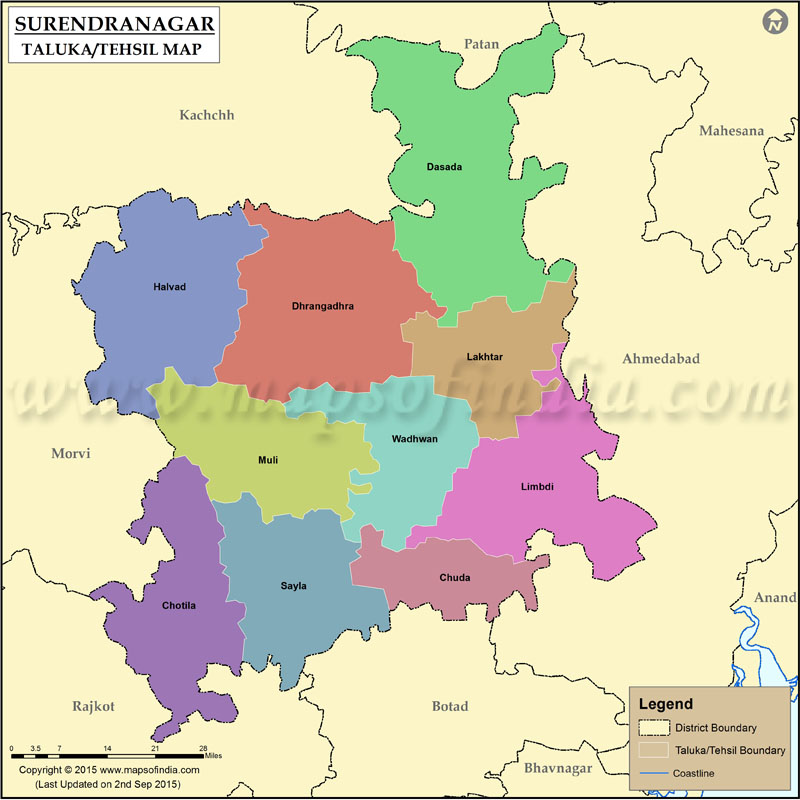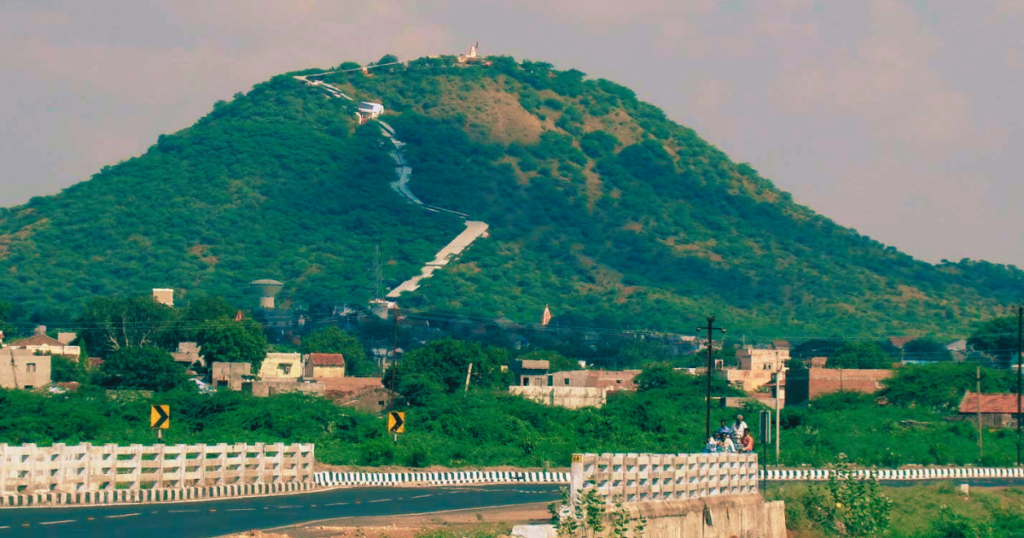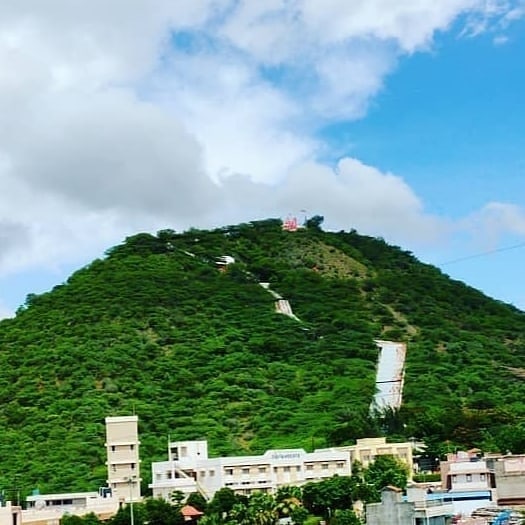Introduction
Nestled in the heart of Gujarat’s Surendranagar district, Chotila is a town that beckons pilgrims and travelers alike with its spiritual allure. Known primarily for the revered Chamunda Mata Temple, Chotila stands as a testament to the region’s rich religious heritage and cultural significance. This article delves into the history, mythology, and modern-day relevance of Chotila, offering insights into its role as a sacred pilgrimage site.

The Chamunda Mata Temple
The Chamunda Mata Temple, perched atop Chotila Hill, serves as the focal point of the town. This ancient temple attracts countless devotees annually, reflecting its importance as a spiritual landmark.
- Architecture and Design: The temple exemplifies traditional Gujarati architecture, characterized by intricate carvings and vibrant murals. The primary shrine is dedicated to Chamunda Mata, a fierce manifestation of Goddess Durga.
- Devotional Practices: Visitors engage in various rituals, including lighting lamps, offering flowers, and performing aarti. The atmosphere is charged with devotion, especially during significant festivals.
Historical Context
Chotila’s association with the Chamunda Mata Temple can be traced back centuries. According to Hindu mythology, Chamunda Mata embodies strength and protection, revered for her victory over demons Chanda and Munda.
- Legend of the Dream: A compelling local legend narrates how the goddess appeared in a king’s dream, instructing him to establish a temple on Chotila Hill. This vision led to the temple’s construction and marked the beginning of Chotila’s spiritual significance.
Growth of the Temple and Town
Over the years, the Chamunda Mata Temple has transformed into a prominent pilgrimage site.
- The Climb: Devotees typically ascend approximately 700 steps to reach the temple, a journey that symbolizes their faith and devotion.
- Amenities for Pilgrims: The burgeoning number of visitors has prompted the development of various amenities in Chotila. The town now boasts guesthouses, eateries, and shops selling religious artifacts, enhancing the overall pilgrimage experience.

Cultural Significance
Chotila is more than just a religious site; it is a vibrant cultural hub that comes alive during festivals.
- Festivals Celebrated: Navratri is particularly special in Chotila, transforming the town into a kaleidoscope of colors and celebrations. The temple is lavishly decorated, and the air resonates with devotional songs and dances.
- Community Engagement: Other festivals like Dussehra, Diwali, and Janmashtami see enthusiastic participation from the locals, reflecting the community’s deep-rooted cultural traditions.
Pilgrimage and Historical Importance
The Chamunda Mata Temple is steeped in historical relevance, frequently referenced in sacred texts like the Skanda Purana.
- Spiritual Leaders and Saints: Many notable saints and spiritual figures have graced Chotila with their presence, further solidifying its status as a pilgrimage site.
- Beliefs and Practices: Devotees visit the temple seeking blessings for protection, prosperity, and spiritual growth, emphasizing the temple’s enduring legacy.
Modern Developments and Tourism
In recent years, Chotila has embraced modernization while retaining its traditional essence.
- Infrastructure Improvements: The Gujarat government has undertaken various initiatives to enhance accessibility, including better roads and transportation facilities.
- Proximity to Major Cities: Chotila’s location near Ahmedabad and Rajkot has contributed to a surge in tourism, making it a popular weekend getaway.
- Local Markets and Handicrafts: The vibrant markets of Chotila are filled with stalls selling handmade crafts, textiles, and traditional jewelry, providing visitors with an authentic shopping experience.

The Legacy of Chotila
Chotila’s legacy is rich and multifaceted, intertwining faith, culture, and history.
- Spiritual Comfort: The Chamunda Mata Temple continues to be a source of solace for millions, embodying the spiritual fervor of Gujarat.
- Cultural Reflections: The town’s narrative, deeply embedded in mythology and tradition, showcases the region’s unwavering religious beliefs.
Visitor Tips
For those planning to visit Chotila, here are some practical tips:
- Best Time to Visit: The ideal months for a pilgrimage are from October to March, when the weather is pleasant.
- Local Etiquette: Respect local customs and traditions, especially during religious ceremonies.
- Safety Precautions: Ensure to stay hydrated and wear comfortable footwear for the climb to the temple.
Conclusion
Chotila stands as a remarkable symbol of Gujarat’s spiritual traditions. The town’s rich history, combined with its cultural vibrancy, makes it a must-visit destination for anyone seeking a deeper understanding of India’s religious landscape. Whether you are a devoted pilgrim or a curious traveler, Chotila promises a transformative experience steeped in faith and heritage.
TOP BLOG:
- Top Tourist Destinations in India: A Complete Travel Guide
- Explore India’s Rich Culture and Tourism Wonders


Pingback: Kolkata – The City of Joy: Culture, Heritage, and Modernity -
Pingback: Sarangpur Hanuman Temple: History, Darshan, and Travel Guide
Pingback: Akshardham Temple Gandhinagar: History, Architecture & Guide
Pingback: Discover the Eiffel Tower - Paris Icon & Top Attraction
Pingback: The Colosseum: Explore Rome's Iconic Ancient Wonder
Pingback: Discover the Magic of Havana, Cuba – Travel Guide
Pingback: Discover Paradise: Maldives Tropical Island Getaway
Pingback: Discover Las Vegas, USA (The Strip) – Ultimate Guide
Pingback: Discover the Vibrant Tarnetar Mela in Gujarat
Pingback: Discover Venice, Italy: Iconic Canals, Gondolas & Landmarks
Pingback: Explore Jerusalem’s Western Wall: Sacred Site - Travel Atlas
Pingback: Discover Kankaria Lake: Ahmedabad’s Iconic Destination
Pingback: Statue of Unity : World’s Tallest Statue – Visit in 2024